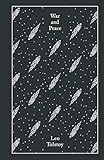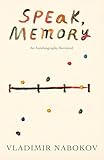Dad’s Maybe Book, the first in almost two decades from the National Book Award-winning author of The Things They Carried and Going After Cacciato, began with stories and reflections Tim O’Brien wrote for his sons after becoming a father at the age of 58. Over time, the book evolved into a recursive meditation on fatherhood, fiction writing, and the unexplainable mysteries of life.
Midway through the book, O’Brien shares a scene from his own childhood in the 1950s, when his father—often drunk and absent—gave him a book of Hemingway stories and asked him to pick five to read and discuss with him. When he finished, his father was nowhere to be found. As a boy, it was devastating, but in looking back on it now, discussing the Hemingway stories and telling us how the best fiction doesn’t explain, he arrives at a stirring description of what fiction does instead:
The essential object of fiction is to embrace and widen and deepen all that is unknown and unknowable —who we are, why we are—and to offer us late-night company as we lie awake pondering our universal journey down the birth canal, and out into the light, and then toward the grave.
O’Brien and I talked about the book, the life lessons he offers, and how to tell a true story.
The Millions: At what point did you know this would be a book book as opposed to a “maybe book”?
 Tim O’Brien: All books are maybe books until they’re finished. Even War and Peace and the Bible. So it went beyond just a title to something important about the way we live our lives. We’re always provisional and conditional. Maybe there’ll be tomorrow and maybe there won’t. So that’s kind of how it developed. After I knew I would have children, I gave up writing and thoughts of publication for many, many years, but periodically I’d sit down and write a little vignette about something that caught my attention that I’d laughed at or cried at. It began really as little messages in a bottle to leave for my children. The way I wish my own dad had done.
Tim O’Brien: All books are maybe books until they’re finished. Even War and Peace and the Bible. So it went beyond just a title to something important about the way we live our lives. We’re always provisional and conditional. Maybe there’ll be tomorrow and maybe there won’t. So that’s kind of how it developed. After I knew I would have children, I gave up writing and thoughts of publication for many, many years, but periodically I’d sit down and write a little vignette about something that caught my attention that I’d laughed at or cried at. It began really as little messages in a bottle to leave for my children. The way I wish my own dad had done.
At some point along the line, my youngest kid saw me writing and he said, “What is it?” And I said, “I hope it’ll be a book someday.” It was the first time I’d even said that, kind of not believing it when I said it. He said, “What are you going to call it?” And I said, “I don’t know. I don’t even know if it’ll be a book.” That’s when he suggested the title. Call it what it is. Call it a maybe book.
TM: Sometimes, in literature and in life, fathers inhabit a silence. Your book speaks from the place of late fatherhood, and you have a great deal to share, which made me think about how other fathers and sons might interact with the book. What did you want to share about fatherhood?
TO: There are several chapters called “Pride,” which get into my misgivings about the subject. We tend to erase our kids’ failures or remember the basket they made from the three point line, and then forget the 25 ones they missed. The same goes with grades and everything else you tend to take pride in. On the other side, disappointment and anger and sadness can come in. Then there’s the pride we take in our country and how we’ll kill and die for it. Pride can be a vice and it can kill people. So there’s this tension inside of me about this whole fatherhood and pride thing. Telling myself, “Watch it. Be careful. It can kill.” And not only can it, it does and has. This is an example of how the book moved from fatherhood to a kind of memoir, in a way. I suppose the book really is essentially a selective memoir. Not chronological, but picking out points of my life or things that have happened that have changed my life.
TM: You write about the dangers of certainty and absolutism. In our increasingly polarized world, what you think is the best way to beat them?
TO: Going After Cacciato ended with the word “maybe” as the second-to-last word, and it infects all my work, since I was in Vietnam when staying alive was always a maybe proposition. Everything seems conditional and I see few absolutes that I can’t some way modify or qualify or change my mind about.
There’s a kind of know-nothing rhetoric, when it comes to immigration and warfare. Who cares about the facts? We’re hearing it from very high places now on a regular basis, in the form of little tweets, which have their own kind of absolutist rhetoric. A tweet doesn’t qualify, show modification or exceptions to the rule. It just declares things. It’s disturbing.
TM: Some of the book’s vignettes are similar in style to your short fiction, where you convey a truth while calling attention to the made-up parts. Did you start drawing intentionally on the writing style that you became famous for?
TO: That’s the age-old question of writing, in that it’s not going to be word for word dialogue. It’s going to be my reconstruction of things that were said, and so on, as faithful as I can be to what I recall. Never exact, but I think that’s true for everybody, not just me. If I were to ask you, “Tell me what happened yesterday,” how much you could get out of your mouth before you’ve blocked out the dish washing and the dialogue coming out of the TV set? I don’t think you could reconstruct what you said when you were shopping for groceries. But none of us can. So much is lost.
 There’s a line in Nabokov’s Speak, Memory: “Well, your memory speaks, but it stutters. It speaks in ellipses.” You do your best to give an impression of a thing that happened, but it’s not an exact replication of what occurred. A few things were so indelible they remained permanent. There’s a part where we’re vacationing in France and my mom died. I told my young kids, who were then 7 and 5. We were walking down this long road down to a little town in France, and one of my sons looked over to me. I asked, “Are you thinking about grandma?” He said, “No, I’m thinking about you thinking about grandma.” That’s indelible. I didn’t make that up.
There’s a line in Nabokov’s Speak, Memory: “Well, your memory speaks, but it stutters. It speaks in ellipses.” You do your best to give an impression of a thing that happened, but it’s not an exact replication of what occurred. A few things were so indelible they remained permanent. There’s a part where we’re vacationing in France and my mom died. I told my young kids, who were then 7 and 5. We were walking down this long road down to a little town in France, and one of my sons looked over to me. I asked, “Are you thinking about grandma?” He said, “No, I’m thinking about you thinking about grandma.” That’s indelible. I didn’t make that up.










